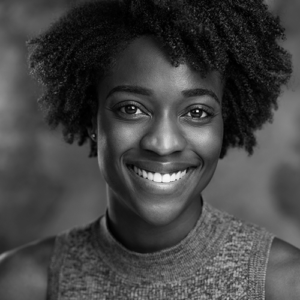
Stories about the sun, the moon, and the way the universe works, have been passed down through generations for thousands of years. These stories shape our thoughts, beliefs, and ultimately, our reality. Human beings are storytellers–we always have been and always will be.
As artists, we are writing our stories by creating art, films, plays, and choreography that perpetuate the narratives and beliefs of our societies. We hold up a mirror for society to show everyone else: “Pay attention to what is happening right now.” This was made clear last year after the brutal murder of George Floyd and the subsequent Black Lives Matter protests, where many artists reflected the stories of the injustices faced by people of colour through their work.
But we as artists have learned stories about our place in society that play themselves out every day in the way we think, speak, and live our lives. What happens when we believe in stories that don’t serve us anymore? Who is left to hold up a mirror for us?
As performers, we are programmed to believe that we must beg, plead, and hustle our way to success. This story is perpetuated by well-meaning teachers, peers, and gatekeepers in the industry, who say things to us like:
“There’s always someone waiting to take your place.”
“Everyone is replaceable.”
And “We must suffer for our art.”
These stories are told to us consistently from a young age, and further drilled into us as we enter the professional world. They are later repeated by agents, casting directors, and directors. It is widely accepted (and almost glamorised) that the life of an artist is hard, and that we must struggle until we reach some arbitrary goal. And it is only when we reach this goal that we are worthy of the title, “artist.”
These flawed stories lead to flawed beliefs, which lead to self-fulfilling prophecies where everyone who identifies as “artist,” believes they must struggle, plead and beg. We accept that this is just the way it is, and continue to hustle and grind, even when we are injured, tired or sick. Many of us are driven by a fear of being replaced. We believe we are never good enough and must work harder and harder until we are. Many of us leave our careers broken, tired, and disempowered, thinking art has turned its back on us. But is the problem the industry? Or is it the story the industry continues to perpetuate?
I used to accept these beliefs and stories as my own–until I didn’t.
Recently, I started questioning where my beliefs came from. Were they really mine? Or were they just fed to me through years of programming?
The question soon became obvious as the forced closure of theatres forced me to think beyond what I thought I knew. I realised that most of my beliefs about being a dancer and performer weren’t mine at all.
So I told a new story.
So often we berate ourselves without even realising, because self-deprecation is valued in our society. It is a depressing fact that the act of debasing ourselves is applauded as humour and intellect. Every day, we call ourselves dumb, fat and ugly and wonder why things in our lives don’t change. We make excuses for our perceived problems and constantly draw attention to the things we don’t want, and wonder why we can’t achieve what it is we want. We say things to ourselves that we would never say to anyone else, and wonder why we don’t feel worthy.
We have it all backwards.
We think that if we work hard enough and achieve enough status, money and success, then we will finally feel worthy of all that we are. But I’ve found that the opposite is true: if we know ourselves as inherently worthy, everything else will fall into place, because it will emerge from our authentic selves.
And as artists and performers, even though we hold the mirror up for society, we can choose to be the change. We can choose to lead the way and tell society a different story – a story of how we want our lives and societies to be – instead of what they are now.
So, every morning, I say out loud the story of the way I want my life to be:
“I love how amazing it feels that amazing opportunities are always coming into my life.”
“I love how amazing it feels that beautiful people are always showing up in my life to connect with me and to support me.”
“I love the fact that I have the power to control my career, my finances, and the way I want to feel.”
As cheesy and ridiculous as it sounds, I promise you it works. I urge you to examine the beliefs and stories you hold, and let go of the ones that no longer serve you. And once you have done that, tell yourself a new story; one that empowers, propels, and inspires you. After all, inspired people are the ones who will change the world.
Love to write or have something to say? Become a contributor with TheatreArtLife. Join our community of industry leaders working in artistic, creative, and technical roles across the globe. Visit our CONTRIBUTE page to learn more or submit an article.


Originally from Barbados, Crystal Nicholls is a Professional Dancer and Nutrition Coach, based in London. She has performed on tv, the high seas, and Disney’s The Lion King. Through her 1:1 coaching programs, she helps high level performers overcome stress, to find balance in their lives and achieve their goals.
Read Full Profile© 2021 TheatreArtLife. All rights reserved.

Thank you so much for reading, but you have now reached your free article limit for this month.
Our contributors are currently writing more articles for you to enjoy.
To keep reading, all you have to do is become a subscriber and then you can read unlimited articles anytime.
Your investment will help us continue to ignite connections across the globe in live entertainment and build this community for industry professionals.